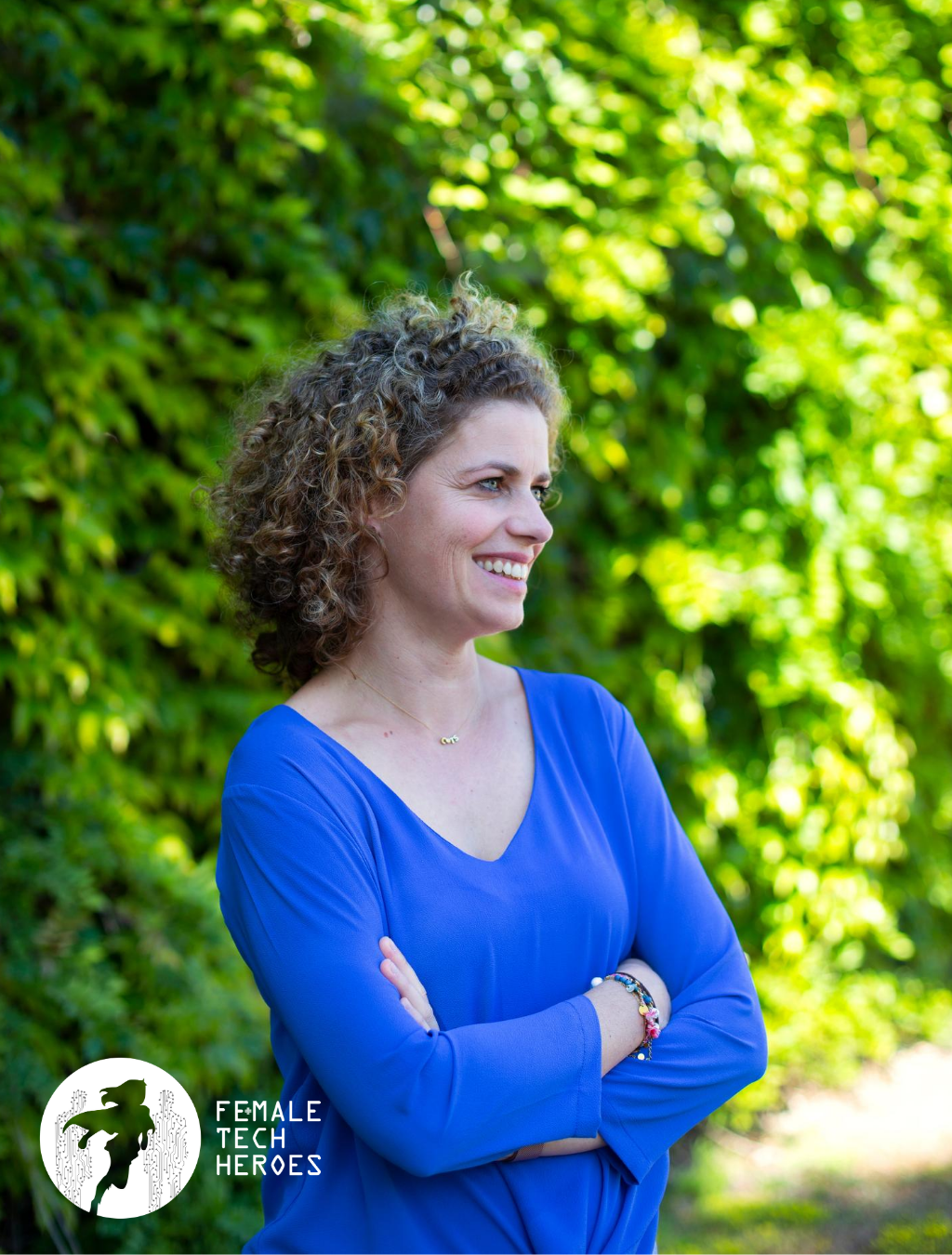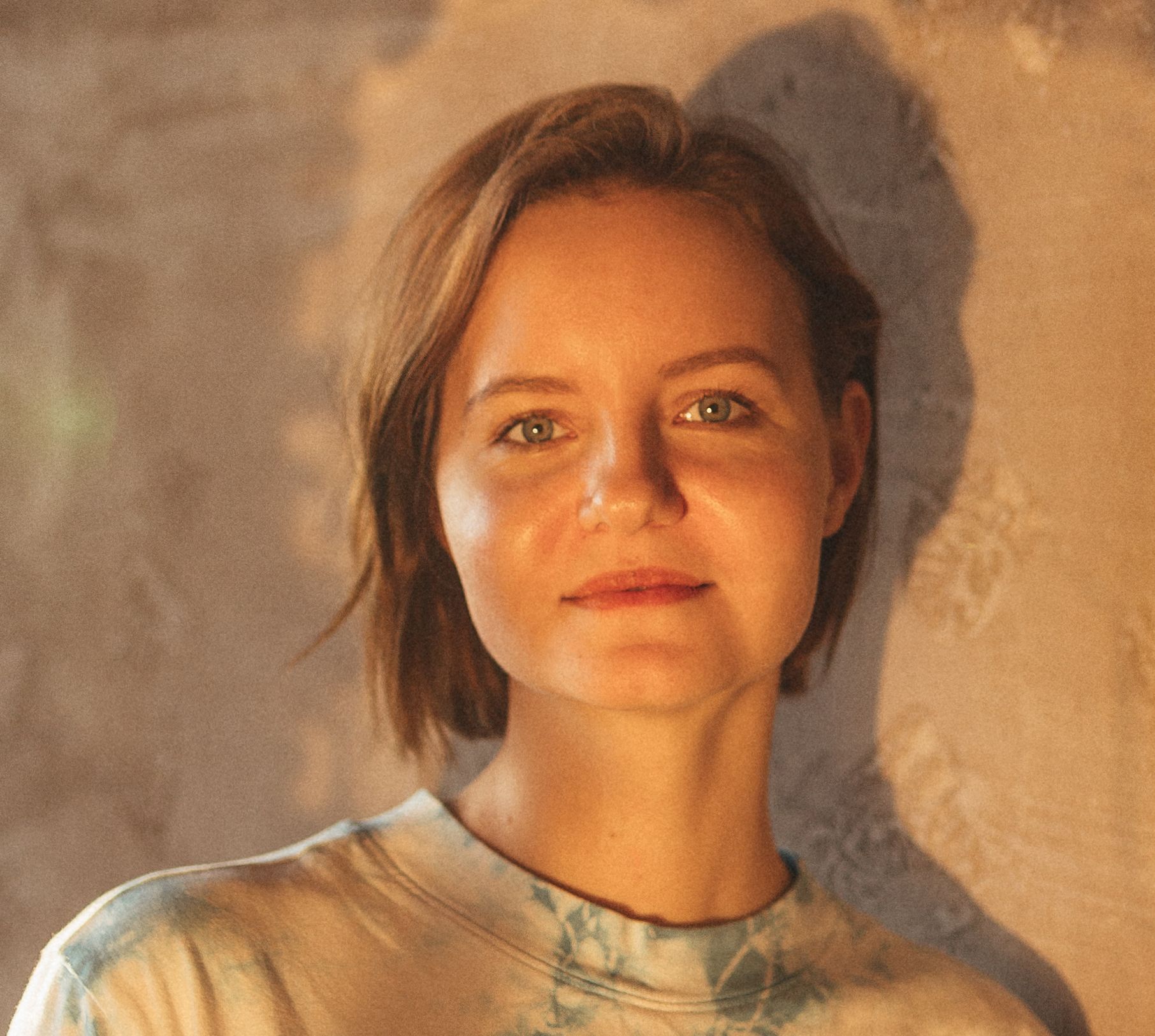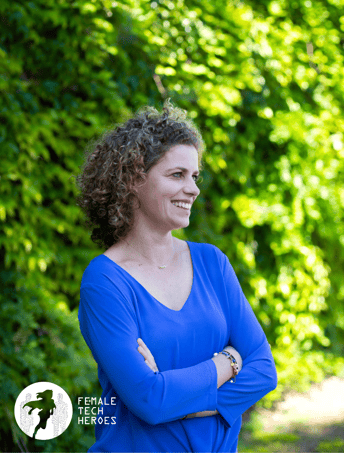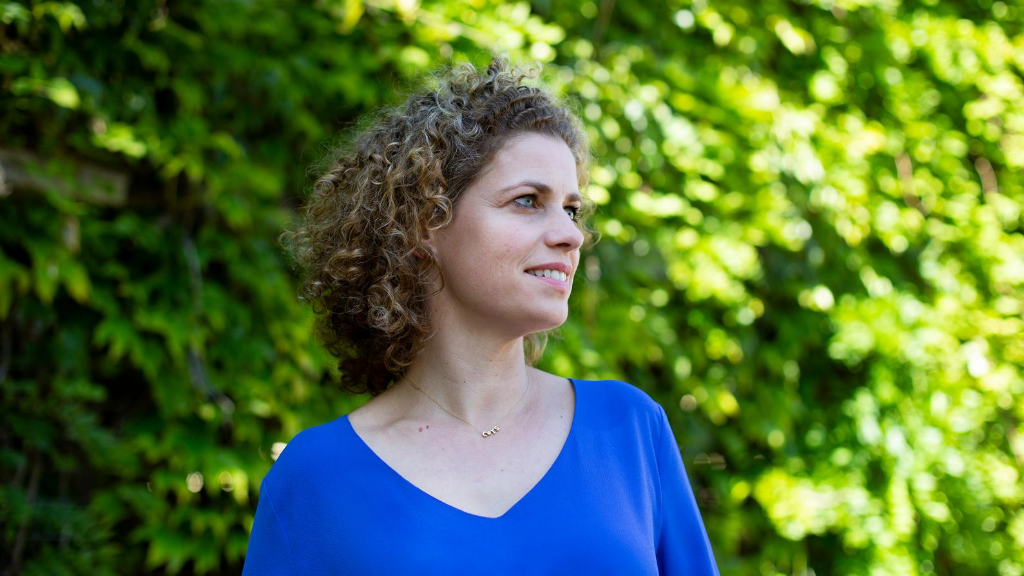


As a physicist and ‘real techie’, Sofie Baselmans dedicated her career to creating healthcare technology. Always searching for the ‘perfect’ workplace, she worked in a hospital and in several corporate environments. A few years ago Sofie joined Plasmacure, a health-tech start-up that has build a device to treat chronic wounds. Unexpectedly, that’s where she found herself the happiest at work. Sofie believes that in the world of today, where the tech industry is getting more and more attention, women just have to step in and express what they stand for.
You wanted to be interviewed about your work in tech, and not because you are a woman working in tech. Why is this so important to you?
I am a true believer that the people in a company should be diverse, a good reflection of society. But I would like to be accepted because of my competence, and not because I am a woman. A great team consists of people who contribute their strengths to the common goal.
I see society changing. It is more accepted to work (almost) fulltime as a woman. You can be a good mother at the same time. Society is changing into a place where everyone, regardless of your gender, can reach for what you want. When I did an internship at Philips a job in the tech world wasn’t considered ‘sexy’. But now it is and I am happy about this. Nowadays technology is much more valued than it was years ago.
I think that women don’t have to shout from the rooftops that we can be great technicians. We just have to step in, express what we stand for and be ourselves. This will definitely be acknowledged and valued.
What do inclusion and diversity within the 'med tech' industry mean to you?
I have never experienced exclusion in the technical environment. Saying that like a real ‘techie’: the technical content of the job is always the most important if you ask me. The high rate of women in medtech can be explained because soft skills are more represented than in other, more hard core tech fields. Soft skills often don’t blend well with technical skills. Therefore, we need people who can create a bridge between facts and feelings. If there is a male candidate more competent to make the team complete, then he should be hired.

Why have you initially decided to study physics? What was the percentage of girls at the University?
I was searching for a study that would bring me joy and happiness, and physics appealed to me immediately. Physics is everywhere, and if you understand it, you can create anything. For a curious and quite technical person like me, that was very appealing. In addition, I wanted to do something socially responsible, which led me to healthcare technology. The percentage of female students at the time (2000) was really small, about 10%, so it felt special.
I guess, many girls think physics is too theoretical and abstract. Unlike for my daughters! They are really curious about my job and about physics. My oldest one did a presentation about gravity when she was eight years old.
How did you experience different work environments?
I started my career at Drager as an verification engineer. I missed the reason why I was doing this work and wanted to learn more about user environments and experiences. At the Jeroen Bosch Hospital I worked as a Medical Application Engineer. Working mostly in patient-environment, among other things. I had to explain to doctors and nurses what happens in technical devices. Those 6 years working at the hospital gave me very valuable knowledge. I got every opportunity to learn and discover the perspective of end users. That was a great foundation for me to join a medical tech company again and now – at Plasmacure – work on the device from the side of an engineer again.
I didn’t expect that a job at a start-up would suit me. I was looking for a dynamic environment and nice people. Then, somebody from my network introduced me to Bas Zeper and told me briefly about his project. The candidate description did not match my profile at all, to be honest. But I sent my CV, and after a long interview/ conversation with Bas, I walked out really inspired. The product and the atmosphere turned out to be a perfect combination for me. We started very small and grew gradually into a company of 14 employees.
At Plasmacure we envision a world in which people no longer suffer from chronic wounds. The innovative treatment method is based on cold plasma technology. Cold plasma can stimulate wound healing. Plasmacure has developed a safe way to apply cold plasma directly in a wound. Our main solution, the medical device PLASOMA brings bactericidal cold plasma directly in the wound. We received a CE-certificate that makes PLASOMA available for the European market.
How is your work doing in times of COVID-19?
When possible I work from home. And to be honest, as a family we worked really well! During the day we scheduled ‘concentration hours’ and we managed to have the same work flow. Sometimes I have to work at the office. At those moments I enjoy meeting colleagues in real life. I notice the corona crisis has an impact on the separation between working time and private time. This separation is less distinct nowadays. It’s easier to reach out to colleagues at a moment I prefer. To me this is a nice side effect.
What do you like most about your work?
What I like the most is the diversity of tasks at our start-up. The R&D department in a start-up is different from a corporate setting. You need help from all disciplines and you need to constantly switch between several tasks and responsibilities. Not one day is the same. Each team member contributes his or her expertise to reach the goal, but also works beyond their ‘profession’. What we cannot do ourselves, can always be done by partners or people in our network.
We work with the knowledge available in the team, in the way that fits us best. And every time we have to balance what’s perfect and what’s feasible. We set short goals, and work towards small achievements.
What were the biggest challenges and the key lessons throughout your career?
The biggest challenge for me is finding a balance between a technical job and growing my own career. I’ve always liked technical processes, but being in a more overall managerial role right now, you have to let go some of the deep technical content. It’s an ongoing search for optimal balance. And the key lesson is to keep trying new things. When I first joined the start-up, I did things that I was not trained to do. But I just had to do them, because there was no one else to do it. Looking back, I’d say hesitation I might have felt was unfounded, you can feel comfortable outside of what you know. The comfort zone does not have boundaries.
